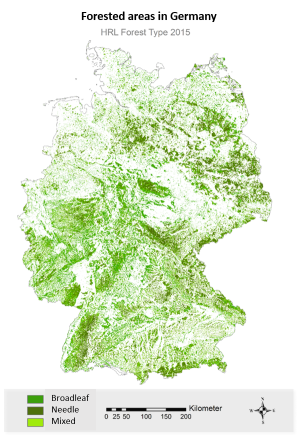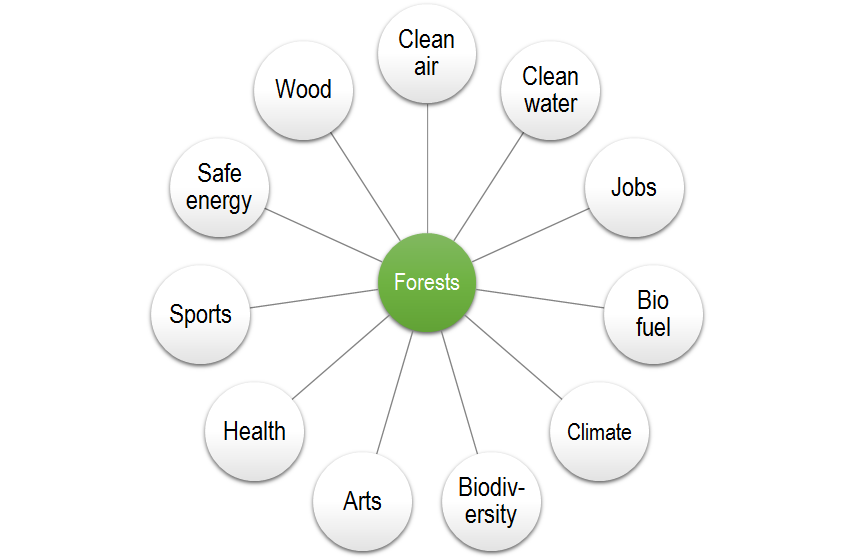Forest and its relevance
Forests take over important functions with social, economic and ecological aspects - the three pillars of sustainability. This term, which currently appears in so many areas, was once coined by Hans Carl von Carlowitz (1645-1714) and has its origin in forestry science. The majority of today's forests in Germany are managed sustainably, i.e. in simple terms: not more is taken than grows back. Germany's forest share has remained relatively stable in recent years. Today, about one third of the national territory is covered with forest.
Forest area in Germany. Copernicus High Resolution Layer: Forests – Forest Type 2015. Source: HRL: EEA (https://land.copernicus.eu/pan-european/high-resolution-layers/forests/forest-type-1), Administrative boundaries in Germany: BKG, VG1000 (https://gdz.bkg.bund.de)
The area and composition of the forest have undergone major changes over time. In spite of all the changes and adversities, the forests today appear to be in relatively good condition at first glance, but are still weakened or threatened by climatic conditions (e.g. drought, storm) and diseases (e.g. insects, fungi). Crown thinning has increased steadily since the first forest condition survey in 1984 (BMEL)).
The Earth's forests are home to about 80% of terrestrial biodiversity. This means that most terrestrial plant and animal species can be found there. This impressively illustrates the outstanding role of forests. From the boreal coniferous forest to the deciduous and mixed forests of the temperate zones to the (sub-)tropical dry and rain forests - they all have unique compositions of flora and fauna.

Forests host about 80% of the terrestrial biodiversity.
However, the proportion of intact primary forest (e.g. primeval forest) in all parts of the world is declining sharply or no longer exists at all. In other words, most forests are no longer in their "original condition", but are secondary forests, such as in Germany and Central Europe, or even plantations. For most of us, the forest is primarily used for local recreation and leisure activities such as picking mushrooms and berries, hiking, jogging and cycling. But forest usually is meant to be used economically and must also be used. It provides jobs - directly in forestry and indirectly in the wood-processing industry. These include producers of wooden pallets, the paper and publishing industries and the furniture industry. In addition, forests are important for the water balance and serve as water and air filters. Forests and trees within cities contribute to a more pleasant (cooler) climate. On a global scale, trees are essential as natural carbon stores for the earth's climate and for mitigating climate change.

